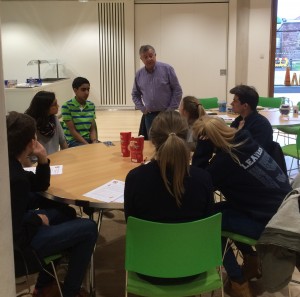By Liverpool YPAG,
Blog by Jenny Preston and Keith Wilson
What is the 100,000 Genomes Project
The project will sequence 100,000 genomes from around 70,000 people. Participants are NHS patients with a rare disease, plus their families, and patients with cancer.
The aim is to create a new genomic medicine service for the NHS – transforming the way people are cared for. Patients may be offered a diagnosis where there wasn’t one before. In time, there is the potential of new and more effective treatments.
The project will also enable new medical research. Combining genomic sequence data with medical records is a ground-breaking resource. Researchers will study how best to use genomics in healthcare and how best to interpret the data to help patients. The causes, diagnosis and treatment of disease will also be investigated. We also aim to kick-start a UK genomics industry. This is currently the largest national sequencing project of its kind in the world.
Patient and public involvement
On the 23rd January the Liverpool YPAG was joined by Keith Wilson who is the Patient Research Ambassador for Liverpool Heart and Chest Hospital Trust and is also the Public and Patient Involvement (PPI) Lead for the NorthWest Coast Genomic Medicine Centre, delivering the 100,000 Genome Project. One of Keith’s roles within this project is to promote the involvement of the general members of the public. To hear more about the project and Keith’s role click here in his latest blog.
Sadly this project is not only about conditions effecting adults, but children and young adults too.
This was the second time Keith had visited the group, his first visit at the end of 2015 was to inform  young people about the project and to discuss their views on the consent process for additional findings in 15-18 year-olds. A report of the session was fed back to the project team and the groups views where taken on board. Keith returned to the group on the 23rd January to get their opinions on the wording and complexity of the patient information sheets and consent materials aimed at young cancer patients. The group had a lot to say about the wording, layout and style of the documentation and the project team where impressed with the feedback.
young people about the project and to discuss their views on the consent process for additional findings in 15-18 year-olds. A report of the session was fed back to the project team and the groups views where taken on board. Keith returned to the group on the 23rd January to get their opinions on the wording and complexity of the patient information sheets and consent materials aimed at young cancer patients. The group had a lot to say about the wording, layout and style of the documentation and the project team where impressed with the feedback.
To find out more about the 100,000 Genomics Project, click here. Listen to how the project is impacting patients and families.